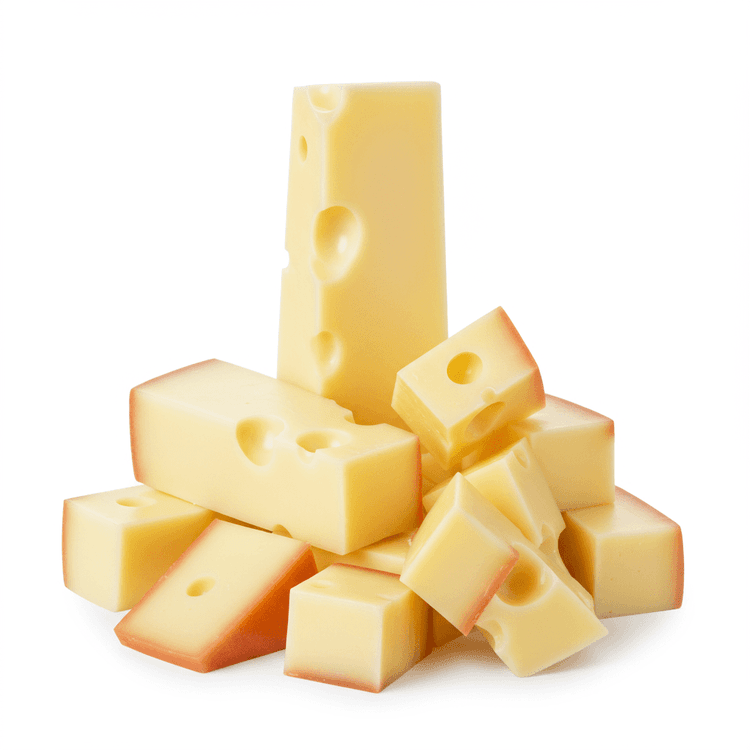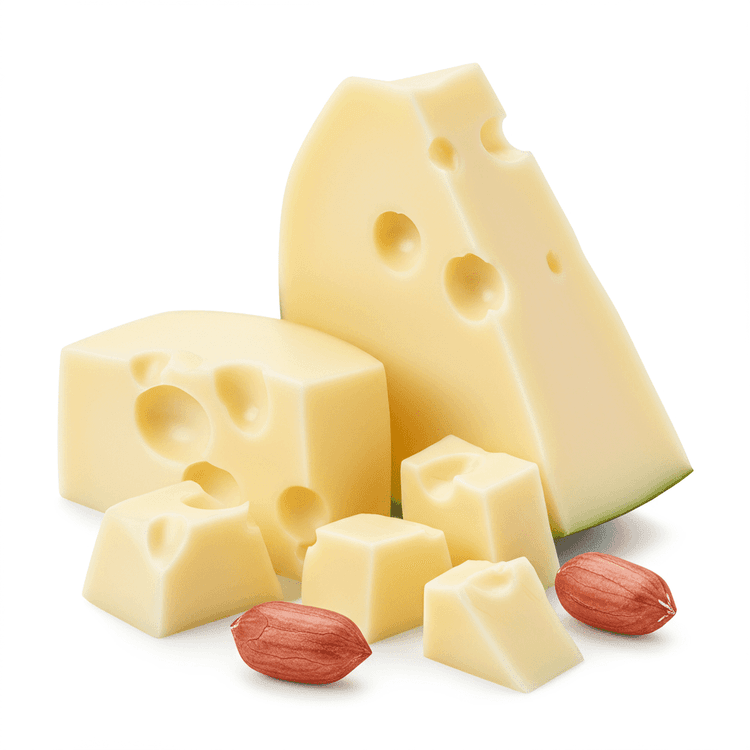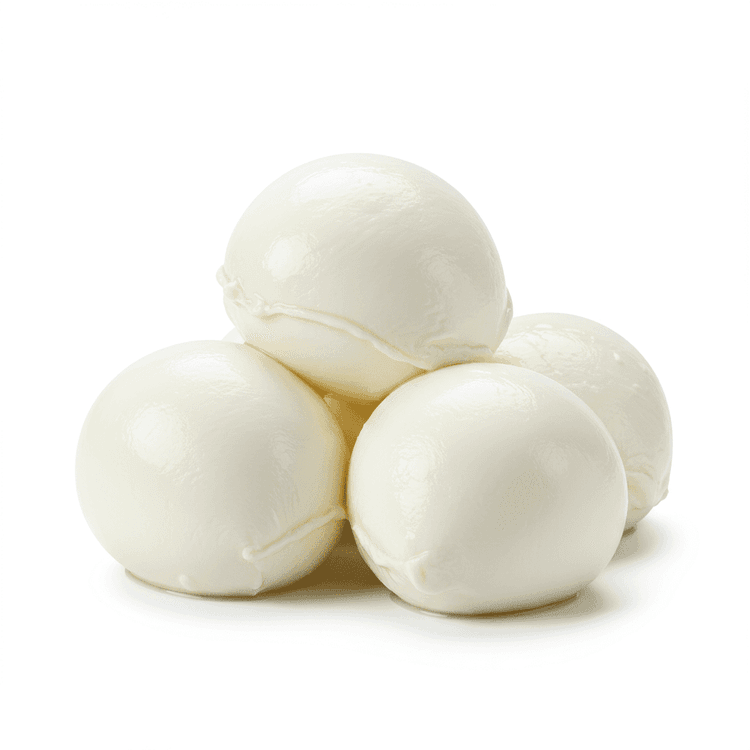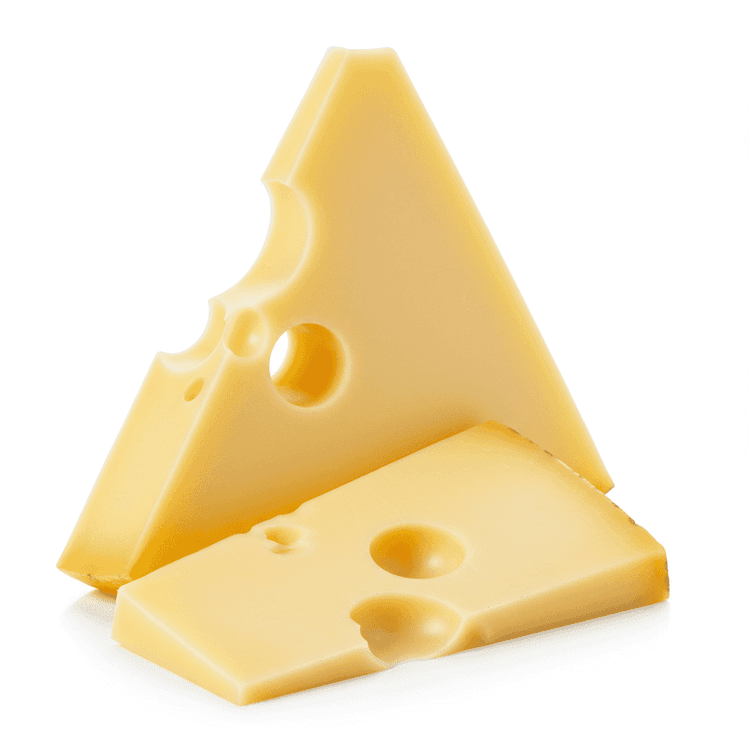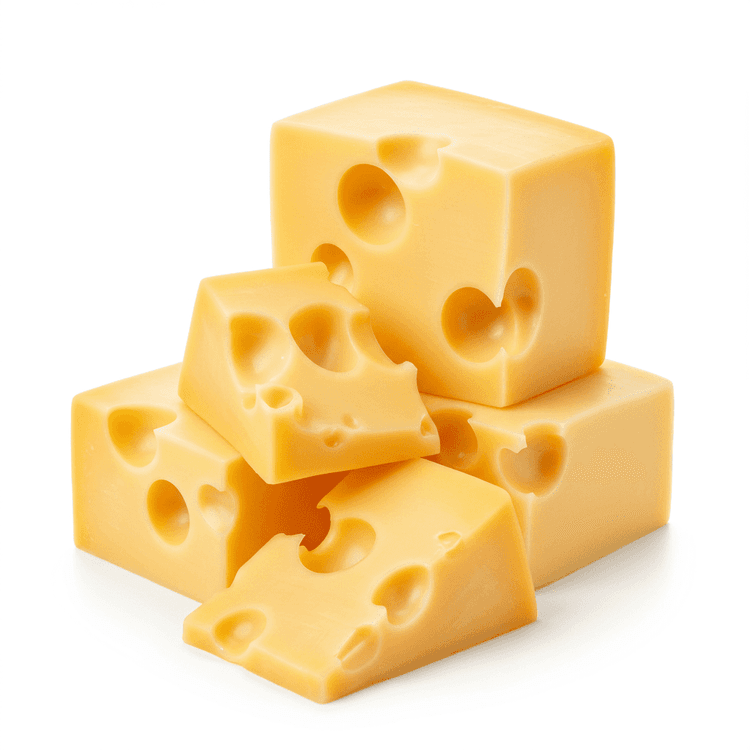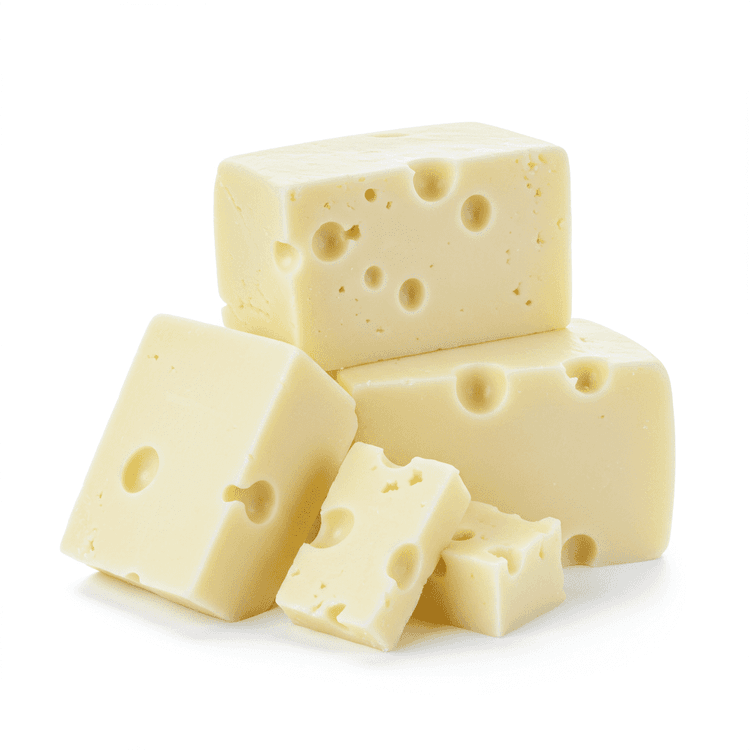
White Cheddar
White cheddar is a firm, off-white cheese with a smooth to slightly crumbly texture, depending on age. Its flavor profile ranges from mild and milky in younger varieties to sharp and tangy in aged versions. The absence of added colorings like annatto gives it its distinctive pale appearance. This versatile cheese is popular for snacking, melting, and grating, offering a rich, savory flavor that complements a wide array of dishes. When shopping for white cheddar look for a smooth surface and a pleasant, cheesy aroma. Good quality white cheddar should melt smoothly and evenly.
Common Uses
- Grated white cheddar is excellent melted in mac and cheese, adding a sharp, creamy flavor and smooth texture to the classic dish.
- Sliced white cheddar is a versatile addition to sandwiches and burgers, offering a tangy and savory counterpoint to meats and vegetables.
- Cubed white cheddar makes a satisfying snack on its own or as part of a cheese board, pairing well with fruits, nuts, and crackers.
- Melted white cheddar can be used to create delicious cheese sauces for vegetables, pasta, or nachos, adding a rich and flavorful coating.
- Shredded white cheddar adds a creamy, sharp flavor to baked dishes like casseroles, gratins, and savory pies.
- White cheddar is often crumbled into salads to add a burst of tangy flavor and creamy texture.
Nutrition (per serving)
Nutrition (per serving)
Calories
403.0kcal (20.15%)
Protein
25.0g (50%)
Carbs
2.0g (0.73%)
Sugars
1.0g (2%)
Healthy Fat
10.0g
Unhealthy Fat
22.0g
% Daily Value based on a 2000 calorie diet
Nutrition (per serving)
Calories
403.0kcal (20.15%)
Protein
25.0g (50%)
Carbs
2.0g (0.73%)
Sugars
1.0g (2%)
Healthy Fat
10.0g
Unhealthy Fat
22.0g
% Daily Value based on a 2000 calorie diet
Health Benefits
- Good source of calcium for strong bones and teeth.
- Provides protein for muscle building and repair.
- Contains vitamin A, important for vision and immune function.
- Offers essential minerals like phosphorus and zinc.
- Lower lactose content compared to some other cheeses, potentially easier to digest for some individuals.
Chefadora AI is here.
Experience smarter, stress-free cooking.
Storage Tips
White cheddar should be stored in the refrigerator to maintain its freshness and prevent spoilage. Wrap it tightly in plastic wrap or beeswax wrap, or place it in an airtight container. For optimal flavor, consume it within 1-2 weeks of opening. Harder white cheddar varieties can last longer than softer ones. Avoid storing it near strong-smelling foods as it can absorb odors. Freezing white cheddar is not recommended, as it can alter the texture and make it crumbly.
Marnirni-apinthi Building, Lot Fourteen,
North Terrace, Adelaide, South Australia, 5000
Australia
